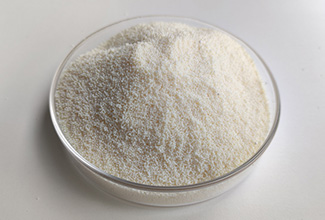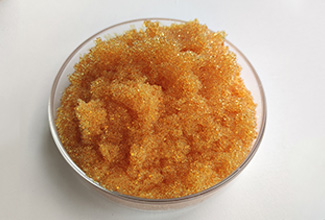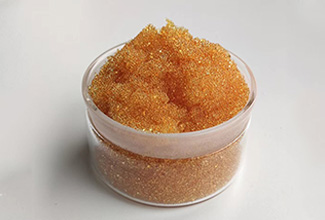
1. Preparation of deionised water: Ion exchange resin is a key material for the preparation of high-purity deionised water, which is crucial for food processing. For example, in the production of drinking water, fruit juice, beer and other liquid food, ion exchange resin can remove impurity ions in water and enhance the purity and transparency of water.
2. Separation and purification of sugar solution: In the sugar industry, ion exchange resin is used to extract sugar from sugar cane or sugar beet, and produce different kinds of sugar, such as white sugar and brown sugar, through decolourisation and purification processes. In addition, it is also used to remove pigments and impurities in the sugar solution to improve the purity and colour of sugar.
3. Removal of harmful substances: In the production of beverages and alcohol, ion exchange resin can effectively remove heavy metal ions (such as lead, cadmium), chloride ions and other harmful substances, so as to improve the safety and quality of products.
4. Preparation of food additives: Ion exchange resin is used to prepare high-purity food additives, such as amino acids, organic acids, etc. These additives can improve the nutritional value and taste of food.
5. brewing industry: in the brewing process of beer and wine, ion exchange resins are used to adjust the flavour and quality of wine, improve the taste and shelf life.
6. Dairy industry: Ion exchange resins are used to remove harmful substances in raw milk and adjust pH value and ionic strength to improve the taste and quality of dairy products.
7. Clarification and decolourisation of fruit juices and beverages: Ion exchange resins are used in liquid foodstuffs such as fruit juices and soft drinks to remove acidic substances, bitter substances and coloured impurities so as to improve the taste and colour of the products.
8. Other applications: Ion exchange resins are also used in caffeine removal, water treatment, and coffee and tea preparation to enhance product purity and safety.
Ion exchange resins in the food and beverage industry not only enhance product quality and safety, but also improve taste and quality while reducing production costs. With the advancement of science and technology, ion exchange technology will develop in the direction of high efficiency, greening and intelligence, bringing more innovation and opportunities to the food industry.




